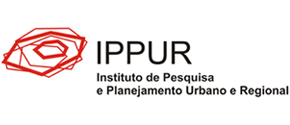Resumo em Inglês
Andreza Garcia de GouveiaDoutora em Ciências do Meio Ambiente pela Universidade do Estado do Rio de Janeiro (PPGMA/UERJ); Pesquisadora de Pós-doutorado do Programa de Pós-graduação em Urbanismo da Universidade Federal do Rio de Janeiro (LEAU/PROURB/UFRJ)Ana Lucia Nogueira de Paiva BrittoDoutora em Urbanismo pelo Institut D'Urbanisme de Paris - Université de Paris XII (Paris-Val-de-Marne); Professora da Faculdade de Arquitetura e Urbanismo e do Programa de Pós-graduação em Urbanismo da Universidade Federal do Rio de JaneiroRosa Maria Formiga JohnssonDoutora em Ciências e Técnicas Ambientais pela Université de Paris-Est Créteil (França); Professora da Universidade do Estado do Rio de Janeiro (UERJ)Hydroracial Scarcity: the access to water through the lens of environmental racism in São Gonçalo, RJ
This article delves into the analysis of water access through the lens of race, employing urban political ecology and the hydrosocial approach. The aim is to contribute to an evolving dialogue within the Brazilian and international contexts regarding the relationship between access to treated water services and environmental racism. Methodologically, São Gonçalo serves as our case study, a peripheral municipality in the Metropolitan Region of Rio de Janeiro boasting the second-largest population in the state. Leveraging geoprocessing, we juxtaposed the geographical distribution of the black and brown population in the municipal territory with the "hydrosocial scarcity" spatialization, where one observes lack of access to treated water for part of the population due to socio-economic reasons. It was found that the population in the districts of Monjolos and Ipiíba is subjected not only to a hydrosocial scarcity in access to treated water but also to a racial dimension of scarcity, referred to as hydroracial scarcity in this study.
Resumo em Português - Texto
Download PDF
Voltar



